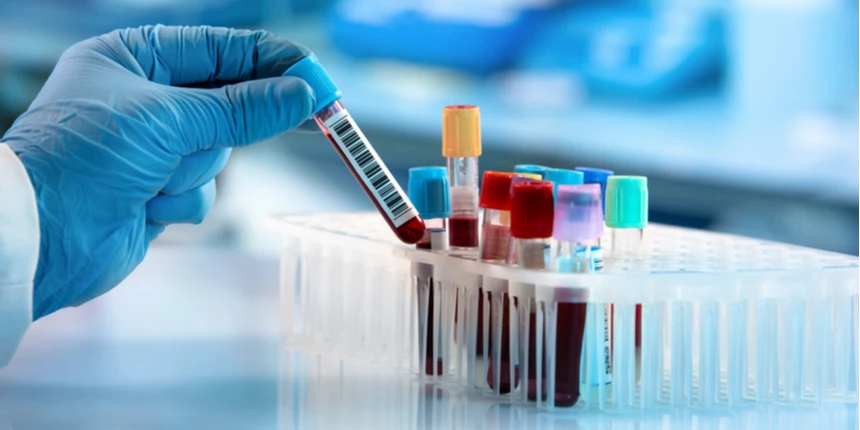Diploma in medical laboratory technology

Course Summery
Our Diploma in Medical Laboratory Technology program is designed to train students in the application of advanced technologies for diagnosing and treating diseases. This comprehensive program equips students with the knowledge, skills, and practical experience needed to excel in the field of medical laboratory technology.
Practical Training:
We believe that practical training is crucial for students to develop proficiency and confidence in the field. Our program provides extensive practical training through laboratory sessions and hands-on exercises. Students will learn to perform a variety of diagnostic tests, use advanced laboratory instruments, and interpret test results accurately. This practical experience ensures that our graduates are well-prepared to meet the demands of the industry.
Our carefully crafted curriculum covers a wide range of subjects essential to medical laboratory technology. Students will gain in-depth knowledge and hands-on experience in analyzing various human fluids, such as blood, urine, stool, sputum, synovial fluid, cerebrospinal fluid, and more. They will learn about specimen collection, handling, and analysis using state-of-the-art laboratory equipment and techniques.
Internship/Practicum:
Many DMLT programs require students to undergo a mandatory internship or practical training period in affiliated hospitals, clinics, or diagnostic laboratories. During this period, students gain real-world experience, apply their theoretical knowledge, and develop essential skills under the guidance of experienced professionals.
Career Opportunities:
- Medical Laboratory Technician: As a Medical Laboratory Technician, you will perform laboratory tests and procedures to assist healthcare professionals in the diagnosis, treatment, and prevention of diseases. This may involve analyzing blood samples, conducting chemical and microscopic examinations, operating laboratory equipment, and maintaining accurate records.
- Pathology Laboratory Technician: In a pathology laboratory, you will specialize in examining and analyzing specimens such as tissue samples, body fluids, and cells. Your role will involve preparing specimens for testing, operating specialized equipment, and assisting pathologists in diagnosing diseases and conditions.
- Clinical Laboratory Scientist: With additional education and training, you can advance to the position of a Clinical Laboratory Scientist. In this role, you will conduct more complex laboratory tests, analyze results, and interpret findings. Clinical Laboratory Scientists often work in specialized areas such as hematology, microbiology, immunology, or biochemistry.
- Research Assistant: If you have a keen interest in scientific research, you can work as a Research Assistant in laboratories or research institutions. Your responsibilities may include assisting in research projects, conducting experiments, collecting and analyzing data, and contributing to scientific publications.
- Quality Control Technician: In the pharmaceutical or medical device industry, you can work as a Quality Control Technician. Your role will involve ensuring the accuracy, precision, and compliance of laboratory testing procedures, conducting quality assurance checks, and maintaining documentation.
Course Features
- Duaration : 2 years
- Eligibility : 10 + 2
- Students : 50